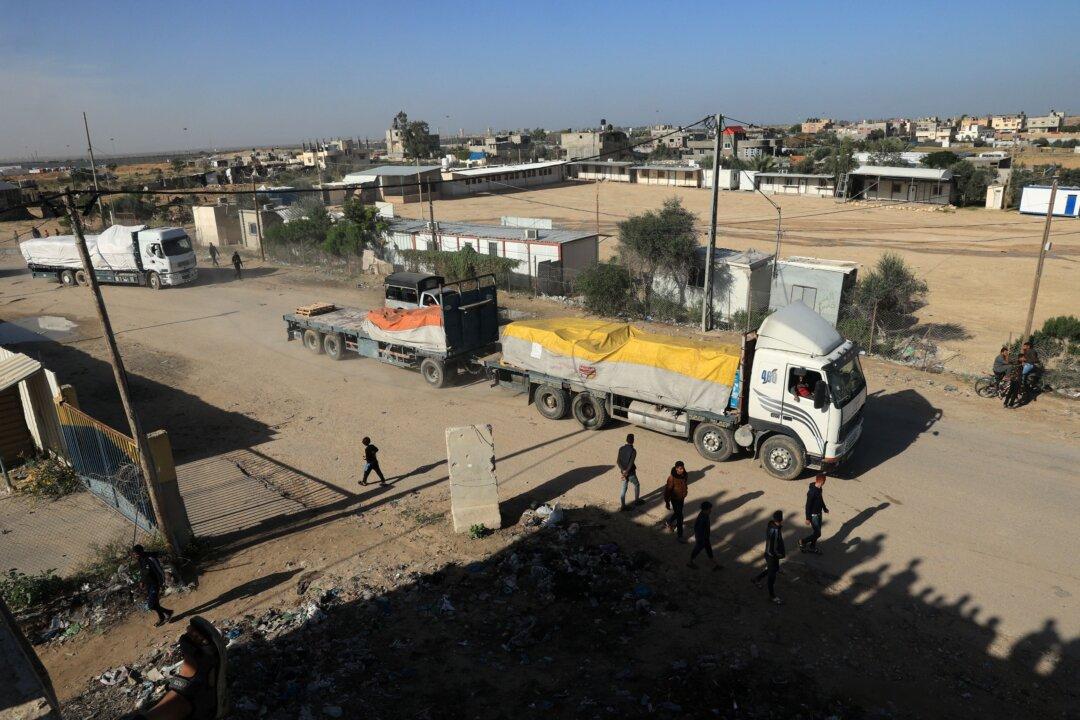The four-day ceasefire in the Israel–Hamas conflict went into effect at 7 a.m. local time, at which time Israel warned Gazans to avoid the enclave’s north and Egypt announced that truckloads of aid would flow into the Strip.
The release of 50 Israeli hostages under the ceasefire deal is highly anticipated. Qatari officials said the first group of 13 hostages, all women and children, will take place at 4 p.m. local time.





